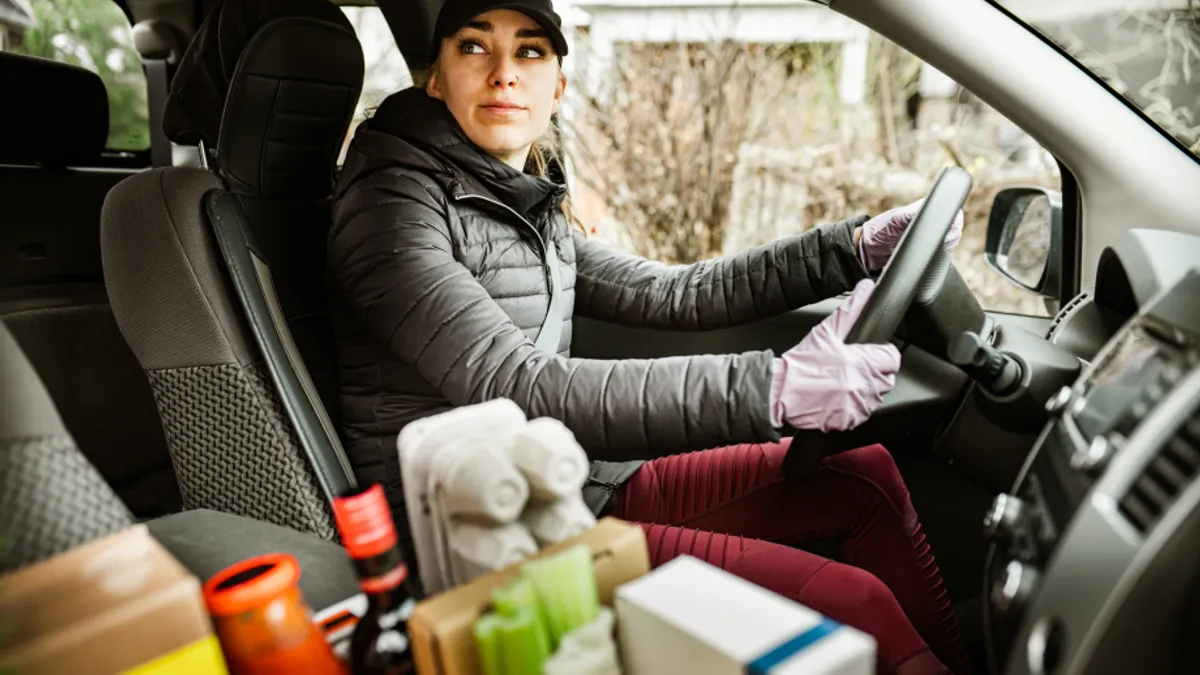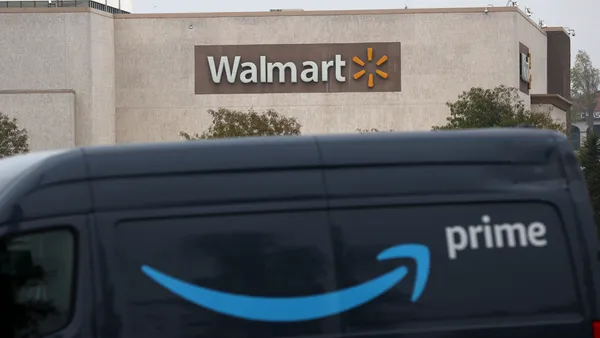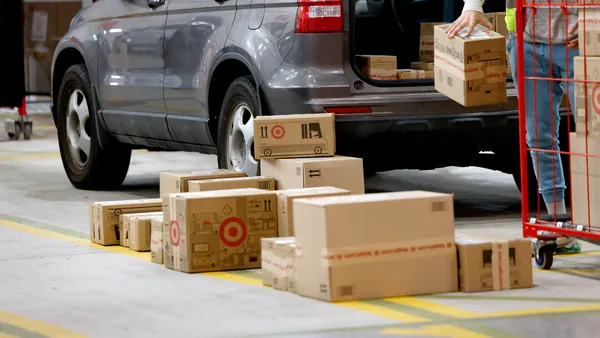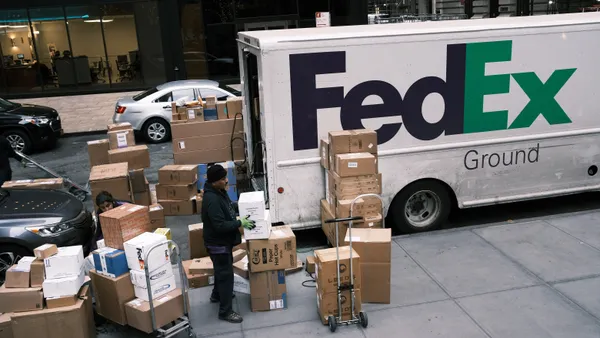Dive Brief:
- Walmart GoLocal is quickly expanding its white-label, local delivery services beyond lightweight shipments from stores, VP Rina Hurst told Supply Chain Dive in an interview.
- The retailer's delivery service platform that reaches more than 18,000 ZIP codes has evolved to handle store-to-store transfers, deliveries from fulfillment centers and big and bulky orders.
- For example, flower company UrbanStems is now using Walmart GoLocal to provide same-day delivery from its fulfillment centers in Dallas, Miami, Atlanta and Chicago. Walmart GoLocal is also delivering big and bulky items for longtime client The Home Depot, Hurst said.
Dive Insight:
Walmart GoLocal is becoming more competitive versus ground shipping options from carriers like FedEx and UPS, said Hurst, the former chief business officer of Target-owned Shipt. Part of this stems from shippers become more amenable to deliveries outside of typical carrier network models.
"Retailers are getting smart about, 'Yeah, this was ordered on our site, but it doesn't mean we have to send it down the traditional path we used to before,'" said Hurst, who joined Walmart last year. "There are many different ways to get packages to consumers."
Like other FedEx and UPS alternatives, Walmart GoLocal has grown fast since its launch in 2021. It has made 12 million deliveries over its lifetime, Hurst said. Less than two years ago, the count was at 1 million.
The expansion of Walmart GoLocal pickup points to more than 16,000 locations is aiding that volume increase and boosting network efficiencies. Trimming last-mile delivery costs has been a priority for Walmart of late, with the retailer making progress on that front by delivering more packages per route.
"All those new pickup points are adding so much great density into our network, which is helping us get really smart with cost," Hurst said.
Beyond UrbanStems, Sur La Table and Books-A-Million are other recent clients that have joined Walmart GoLocal. Hurst said the platform wants to draw in a wider range of clients while maintaining its "built by retail for retail" philosophy.
"When you have that core of building a business for retail — and not for rideshare, not for restaurant delivery, but for retail — you really can get really efficient and really smart and really thoughtful about how you build for other retailers," Hurst said.
Editor's note: This story was first published in our Logistics Weekly newsletter. Sign up here.














